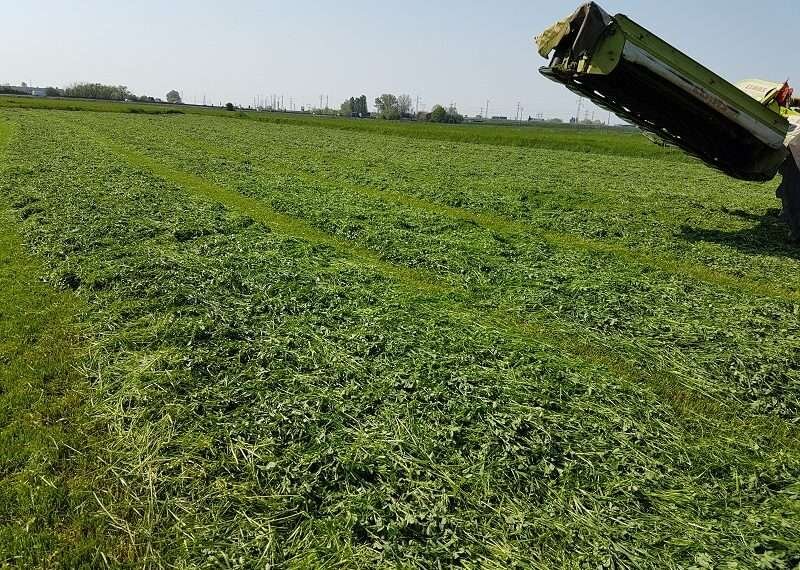The Alfalfa Seed and Alfalfa Forage System Program (ASAFS), a program created by the United States Department of Agriculture, is offering a grant to help producers improve alfalfa forage and seed production systems.
Areas for proposal research include increasing yield and quality; improving harvest and storage systems; developing methods to estimate forage yield and quality to support marketing and reduce producer risks; exploring new and novel uses for alfalfa; improving production and quality of alfalfa seed; and document the contribution of alfalfa production systems to climate-smart agriculture, including the sequestration of carbon.
There is an estimated $3 million available, and individual grants can reach up to $900,000, with a payout of $300,000 a year for three years. If received, the producer must be able to match the grant amount with non-federal funds, including funds from an agricultural commodity promotion, research, and information program in-kind support.
Proposal deadline and eligibility
Proposals must be submitted by June 2, 2022. Proposals submitted to ASAFS should address one or more of the following priorities: Improving alfalfa forage and seed yield through better nutrient, water, and pest management; Improving the persistence of alfalfa stands by lessening biotic or abiotic stresses; Improving alfalfa forage and seed harvesting and storage systems to optimize economic returns; Improving estimates of alfalfa forage quality as an animal feed to increase forage usage in animal feeds, and breeding to address biotic and abiotic stresses that impact forage yield and persistence and the production of seed for propagation.

Individuals who have previously submitted proposals must also include a response to the previous review panel summary. The evaluation is a two-step process: a preliminary review to ensure the proposal meets the administrative requirements and then a scientific peer-review process to evaluate proposals that have met the administrative requirements.
Applications may only be submitted by: State agricultural experiment stations; Colleges and universities; university research foundations; Other research institutions and organizations; Federal agencies; national laboratories; Private organizations or corporations; and Individuals who are United States citizens or nationals.
Purpose and priorities
Alfalfa is essential to sustainable agricultural production systems and is an economic engine for rural communities. Its value for soil conservation, nitrogen fixation, energy savings, crop rotation benefits, and wildlife habitat is high. However, to provide these societal benefits, alfalfa production must be profitable to farmers through market outlets to expand the use and acreage of alfalfa.
The Alfalfa Forage Research Program (AFRP) is an alfalfa-oriented, integrated research and extension program that supports technology transfer to improve overall agricultural productivity, profitability, and conservation of natural resources through conventional and organic alfalfa forage and seed production systems.
The AFRP encourages applicants to establish interdisciplinary and multi-location regional research and extension networks to address national priorities or regional science needs of the U.S. alfalfa forage industry. By bringing together expertise across multiple universities, federal agencies, and industry organizations and states, AFRP projects seek to enhance the effectiveness of limited state, national, and industry resources and produce more significant long-lasting impacts.
READ ALSO: GNFS Laments Encroachment Of Illegal Structures On Fire Hydrants























